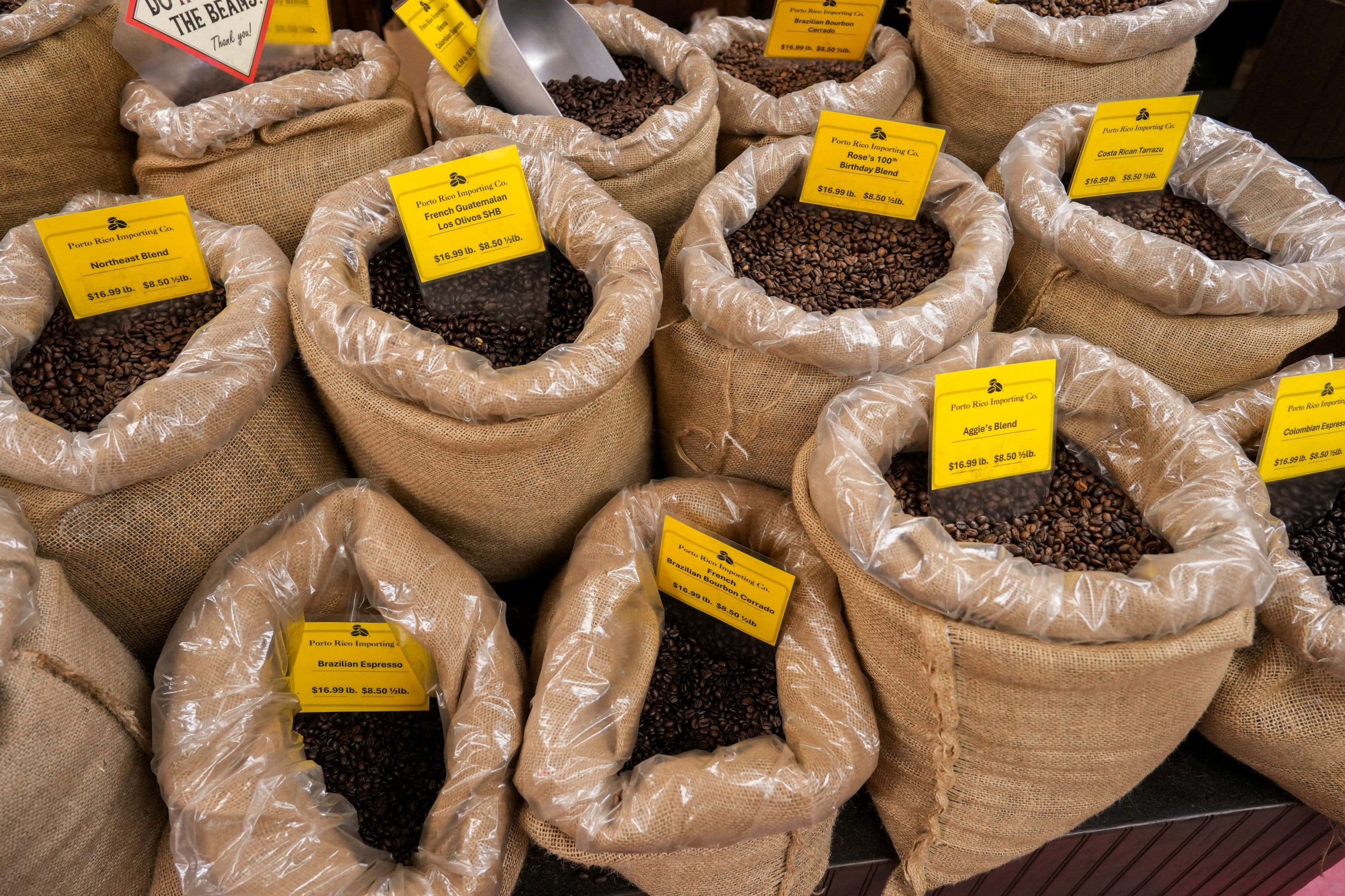While last month’s consumer price index showed that food prices were effectively flat month over month, tariff-sensitive items like coffee beans, specialty teas and spices are showing signs of inflation, worrying small businesses selling those products.
According to the Bureau of Labor Statistics, coffee prices surged 14.5% in July year over year. The average retail price for a pound of ground coffee hit $8.41. Overall, food prices were unchanged from June to July but remained 2.9% higher than a year ago, the data showed.
Jessica Simons, owner of Bethany’s Coffee Shop in Lincoln, Nebraska, told CNBC that her shop has seen prices go up 18% to 25% since January.
“We had to put a 3% fee on the coffee because we are waiting for our new menus to be printed, reflecting the new price,” said Simons. “But the prices have changed so quickly that we can’t reprint menus every time the price goes up.”
Simons said in addition to coffee, the shop is paying increased prices on avocados and tomatoes.
“We also have a restaurant and we employ 24 people,” added Simons. “We are at a point where we don’t have a choice but to raise prices. Our margins are thin. Small businesses are struggling with the rising costs of tariffs.”
The Tax Foundation recently calculated that almost 74% ($163 billion) of U.S. food imports will be facing tariffs.
Josh Teitelbaum, senior counsel at Akin, said that companies that import unavailable natural resources such as coffee or coconut water don’t have the option of on-shoring to avoid the tariff.
“Their ability to shift sourcing to other countries is limited,” said Teitelbaum. “They feel stuck facing a higher tariff no matter where they import from. The Administration does have a policy to accommodate this reality in some instances, but it’s still a work in progress.”
Anjali Bhargava, founder of Anjali’s Cup, which makes retail spice packages of Ayurveda-inspired turmeric and chai blends, said nearly all of their caffeine sources come from abroad. Bhargava’s spices are sourced from Vietnam, Thailand, Africa, and South America; tea and peppercorn from India; saffron from Afghanistan; and special retail tin packaging is made in China.
“Consumers will still drink tea, but they may get lower quality products from companies that can weather these costs,” said Bhargava. “Small, bootstrapped brands that prioritize integrity and authenticity could be squeezed out entirely.”
Bhargava is concerned about the 50% tariff on tea from India, and said at the retailers where her product is sold, like Whole Foods, there is little room for major price changes.
“The president frames this as punishing India, but it will primarily harm American small businesses, companies, and their employees, as well as American consumers,” said Bhargava. “The 50% tariff on tea, not to mention the tariffs on my spices and other necessities, will devastate my already slim margins and could force me to raise prices that customers are already balking at, given the leverage my large competitors have.”
Bhargava has made concessions on her packaging, which was manufactured in China, but told CNBC she refuses to compromise on ingredients.
“This tariff forces a choice between maintaining quality and staying in business, and many small businesses won’t survive that choice,” said Bhargava. “My chai concentrate uses organic single-origin Assam CTC tea that I can only get from India; There’s no alternative source. I can’t afford to stockpile like my larger competitors, especially given how unlevel the playing field already is.”
There are concerns as well that the impact of tariffs will flow further onto grocery stores into other products. That could be further amplified by the cuts to the SNAP program by the Big Beautiful Bill, all of which is leading to lower forecasts from retailers, according to Heather Rice, line of business leader, at KPMG’s products division.
“Almost 9% of spending comes from those recipients,” said Rice, who oversees the consumer, retail, industrial manufacturing, energy, and life science practice. “The amount of products on the shelves, I believe, will change based on where they source their products. Between our crops and exports, we can have blueberries 12 months out of the year. But I think with tariffs, we could see a change there, where you don’t have blueberries all year long. I think we could see a product shift.”
Other fruits and beans not grown in the United States facing tariffs include bananas and kiwis.
Bhargava said the global trade war is going to hurt everyone.
“Coffee shops are already fighting for survival and need to protect their margins to keep the lights on. When authentic, quality products become unaffordable, the entire supply chain suffers. The tariffs will eliminate the diverse, authentic businesses that make American markets vibrant.”
International: Top News And Analysis
Read the full article <a href="Read More” target=”_blank”>here.


